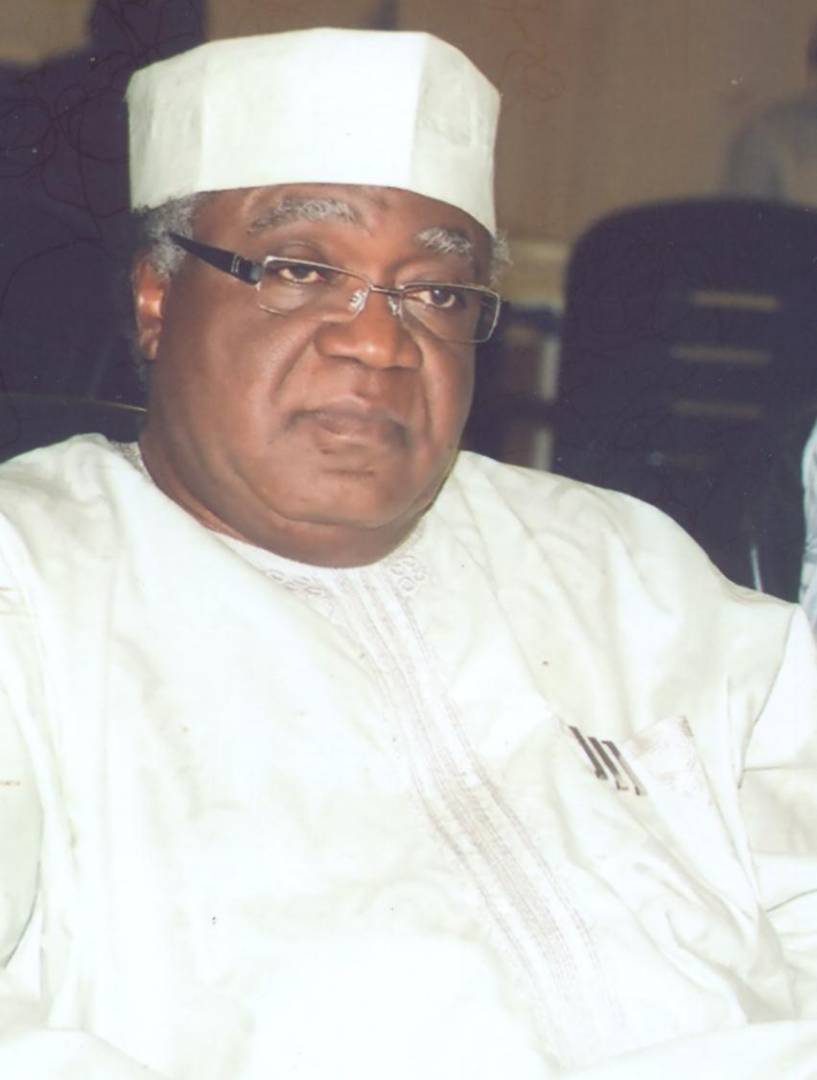 There is dialectic to democracy: the time of its highest purchase globally is also the time of great difficulty in determining when it is democratic. There is nowhere as the African continent where the question of when is it democracy is posed most. This context gives additional significance to Section Three of Professor Isawa Elaigwu’s newest book titled Between The Ballot Box and The Barracks in Africa: Prospects for Enduring Democracy in Africa. This section of the book is a recap of the democratic journey in Nigeria between 1999 and 2017 and could be revealing. The first installment of Intervention’s review of the book has taken care of the key contention of the book and its first and second sections. This is the concluding segment.
There is dialectic to democracy: the time of its highest purchase globally is also the time of great difficulty in determining when it is democratic. There is nowhere as the African continent where the question of when is it democracy is posed most. This context gives additional significance to Section Three of Professor Isawa Elaigwu’s newest book titled Between The Ballot Box and The Barracks in Africa: Prospects for Enduring Democracy in Africa. This section of the book is a recap of the democratic journey in Nigeria between 1999 and 2017 and could be revealing. The first installment of Intervention’s review of the book has taken care of the key contention of the book and its first and second sections. This is the concluding segment.
If Prof Elaigwu allowed Gen Ibrahim Babangida to escape reprimand for introducing the Structural Adjustment Programme, (SAP) even after how devastating SAP had been in Latin America, he did not spare General Obasanjo for actions considered antithetical to democratic consolidation. Nor is President Buhari spared for the clumsiness that defined his exercise of power contrary to the image of him as a liberal, accommodating, frugal democrat, highly intolerant of corruption that his publicists crafted in 2015 as opposed to the image of an authoritarian, vindictive and religiously myopic General associated with him before then. In between is a chapter on the Yar’Adua and Goodluck Jonathan regimes and the last of the chapters is the conclusion.
The report card on Obasanjo regime is detailed, with a credit and a debit sides to it thereby fulfilling the requirement of bringing all angles to the issue. The reason for the stress on Obasanjo is his being the first test curve of Nigeria’s democratic constitution as well as he serving as a bridge between the military and the civilians constituencies. His was thus the building block on which the transition from military rule and the construction as well as consolidation of democracy was laid in 1999. The late Dr Alex Ekwueme and Chief Olu Falae were discarded in favour of Obasanjo who was considered more capable of holding the country together. The verdict in the book is, however, that Obasanjo’s return in mufti was both a blessing and a disaster. He was diagnosed to suffer from messianic arrogance and residual militarism, a big and fragile ego and a claim to encyclopedic knowledge which made it difficult for him to take advice, (P. 282). In the end, he did a few things right but so many things wrong.
The chapter on the Yar’Adua regime and his own political personality is the shortest of them all but the chapter where a Nigerian leader is ‘celebrated’ as a believer in democratic Nigeria, as having a reformist zeal as well as strength of character and independence, (P. 333). Specifically, he is credited with his rule of law paradigm pf power, electoral reform, Niger-Delta amnesty, the ideology of ‘making Nigeria one of the 20 powerful nations and largest economies by 2020’. This report card means that most readers would spend longer hours on the shortest chapter of the book reflecting on how Yar’Adua could earn an A grade where veterans were scoring D and E grades under Professor Elaigwu’s marking scheme. How great the chapter might have been if there was a hint that Yar’Adua wasn’t just a graduate but a student activist in his days. Did his ability to frame the objective of power in terms of rule of law have anything to do with the grooming he obtained from that exposure, making him a critique of others who sought power, reduce it to award of contracts and how to humiliate perceived opponents?
Goodluck Jonathan comes out in the book as caught up between the contradictions of his own emergence: the Nigerian Constitution gave it to him but the zoning convention did not. How prepared was he in grappling with legitimating power, handling rule of law, fighting corruption, managing insecurity and winning the 2015 election in which electoral liabilities had accumulated against him? Chapter Thirteen which looked at Buhari from 2015 to 2018 concludes it is still too short to make a categorical statement but noted the complications of fighting corruption by the regime and how the All Progressives Congress, (APC) has all but transformed from the mass movement it was to something not too clear now. Also noted is the tension between what seems a commitment to rule of law and a tendency to contradict it.

Obasanjo, Goodluck Jonathan in the middle and the late Umaru Yar’Adua
With this recap, the author predictably concluded that Nigeria illustrates the point that though not alien to Africa, the current socio-political institutions defining democracy are Western. Hence, his case for domestication of democracy on the continent. By that, he means adaptation of democratic institutions to local African conditions and problems as obviously his antidote for instrumentalist sense of politics among African elite and thus their inclination to collaborate with anti-democratic forces to undercut and corrupt democratic processes.
Specifically, he rates Nigeria to be on top of low level of democratic governance, not as good as the progress that have been made in Ghana, Senegal, Botswana and Tanzania. But his is not a dismal tunnel as he notes bright spots that give him cause for optimism. The country has been able to stay together for over fifty years. That, in his view, is something great. The democratic space, he notes, has widened in terms of respect for human and individual rights, freedom of the press, of thought, of religion and of association. Though still a largely dependent civil society, it is nevertheless scored to be a more proactive and interventionist one. Though under the pangs of poverty, the electorate is also rated as becoming more enlightened and beginning to stand up to defend its rights, especially in some states.
However, Elaigwu has something of the home truth for those who have ears to hear about Nigeria: “She has not done what she should have done to transform herself from a poverty-stricken Third World country to an industrialised one, given her human and natural resources. Many Nigerians are angry about wasted opportunities, talents and material resources. They are disappointed with leaders and their followers who are still using 18th century techniques to govern their country in the 21st century, drowned in the vortex of primitive accumulation, consumption and vanity”
To respond to this home truth portrait, the Professor Emeritus of Political Science at the University of Jos warns against Nigeria failing to take her destiny in her hands “by taking appropriate actions to correct the shaky foundations of the past and lay concrete bases for the future”. For such actions, Elaigwu takes thirty pages in all, (398 to 428) to draw attention to what must be done on each of the key issues involved. Basically, nothing is left out. There is the element of banal nationalism on page 425 where he makes a case for a return to the old national anthem which he argues to contain the inspirations for nation building than the current national anthem. It is on that note that he brings the book to a close.
The claim that opened the first installment of this review to the effect that so vast an array of readers would be after this book for what it offers comes to mind here. It is as much a book for the ordinary or general interest readers such as journalists, politicians and the business elite on the one hand and the experts such as students and researchers of Nigerian Government and Politics, African Politics, Sociology of the Military, Politics of Development, the State, Military in Politics, Political Realism and Political Sociology. All other things being equal, all such readers can find the book to buy as from April 11th, 2018 when the public presentation takes place.




























